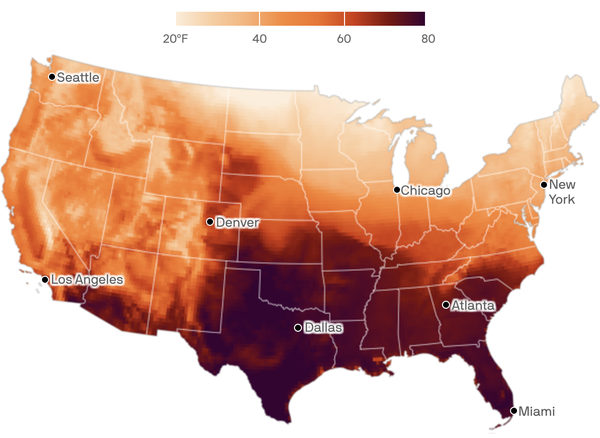Our Financial System is Precarious

Greetings, Brothers and Sisters!
I pray that you all are doing well or at least improving, given the sickness that has been circulating lately. Please join us in praying for all who are suffering from this awful cough, which seems to hit the young the hardest.
There is something so essential and healing in our Christian walk about carrying a concern of love—through prayer and acts of service—for others in need. Yes, we all have our own private battles and burdens to bear, but even these are served by an outward mindset, prayer, life, and posture of faith as we discover the truth of Jesus’ promise that it is indeed “more blessed to give than to receive” (Acts 20:35).
So we give of our thoughts, our prayers, our time in practical support—our love. And we do it for them and for Jesus, adding our tiny part to the sure investment He’s already made, trusting Him to calculate and receive the returns, whether now or in the future, seen or unknown to us. “Your labor is not in vain in the Lord” (1 Cor. 15:58).
Well, I said more in my introduction than I intended, but perhaps that’ll help me be more brief as I pivot to speak of more practical matters, which, incidentally, relate to this spiritual reality as well.
The Precariousness of Our Financial Systems
Two weeks ago, while out of town, Brother Howard contacted me, eager to discuss the economic landscape. When he returned to Texas, we met and spoke for a few hours about the mindset we must cultivate as Christians in these prosperous yet perilous times. Our conversation took place on Thursday, mere days before the August 5th jarring market slump, which was a stark and timely reminder of the precariousness of our financial systems. If ever we needed proof that the ground beneath us is shaky, there it was.
On Monday, August 5, 2024, the U.S. Consumer Sentiment Index plunged to an alarming 55, a level even lower than during the COVID-19 pandemic. This sudden drop was fueled by a mix of economic concerns, including a significant rate hike by the Bank of Japan and troubling signals from the U.S. labor market. The markets faced a sharp decline, exposing the precariousness of investor confidence and the fragility of the current economic environment.
A Call to Wisdom and Stewardship
I have no intention of wading into the deep waters of economic theory or parsing the myriad complexities of finance as it relates to our faith. Instead, I want to plant a few seeds—thoughts concise enough to spur consideration, prayer, and perhaps some serious scriptural discussions.
In our personal discussion, Brother Howard, with the urgency of one who has lived through turbulent times, shared how this generation has yet to experience the full weight of economic upheaval, the kind that has rippled through history with relentless regularity. He recounted living through Black Monday in 1987—the abrupt job losses, the crushing debts, the desperate search for work that sent men crisscrossing the country to keep their families afloat.
His words called to mind my own exhortation from the previous Sunday when I urged us not to place blind trust in an economic house of cards, not to be lulled into complacency by a system built on shaky foundations. Rather, I encouraged us to “make use of this world as not misusing it” (1 Cor. 7:31)—and to intentionally leverage the temporal in service of the eternal.
God has granted us a vision of a life whole and complete—beginning with our relationship with Him, extending to each other, then to nature, and finally to the world at large. He has allowed this bubble of prosperity, not so that we might revel in it as if it were the Promised Land, but so that the wise among us might convert these “plunders” of “Egypt” (Exod. 3:21-22) into a vision rooted in faith, rather than blind, default trust in the crumbling systems of this world.
Back to our econmoy talk—Brother Howard voiced concern over the amount of debt that many today assume, perhaps under the delusion that the current flow of cash will never cease, that debt can somehow be managed indefinitely. I couldn’t agree with him more. Scripture speaks of debt many times, but never with approval. While the Bible does not outright forbid debt, it does call for caution. For those who do not take it for granted but use it as a temporary stepping stone, perhaps God permits it as a fleeting tactic of shrewd stewardship—toward acquiring land and homesteads where we can produce our own sustenance, where we are less at the mercy of external forces.
Some speculate that in a hyper-inflated economy, debt might become “cheap” as borrowers pay yesterday’s debts with today’s devalued money. Such a scenario is conceivable but far from assured. We live at a time in America where recession-proof service trades—like plumbing and electrical work—have been largely neglected by the current generation, resulting in a shockingly high average age of master craftsmen in these fields across America. In our community, where we’ve deliberately turned away from the debt-laden college and liberal arts path and instead embraced hands-on training and apprenticeship in real-life skills, one could hope that we might fare better in an economic storm, especially if our trades are not solely tied to new construction (which will dry up in a crisis) but also grounded in service and maintenance.
Yet, as Brother Howard wisely observed, the more dangerous scenario may not be runaway inflation but a prolonged recession or stagnation—where debts don’t become easier to pay off, but income becomes scarce.
A Call to Action and Reflection
Please hear these thunderclaps in the economic world as warnings of possible coming storms. While there’s no gain in succumbing to fear, there’s even less safety in placing our trust in something the Bible guarantees will eventually collapse in one hour (Rev. 18:10).
God has blessed our businesses and prospered our efforts—largely because of the corporate standard and witness of excellence that has been upheld and exemplified throughout the course of our history, especially by our first generation.
And if we understand these “plunders of Egypt” as having a God-given, transcendent purpose in advancing our vision of sustainability, building kingdom relationships, and spreading the gospel—then we will have wisely exchanged the temporal for the enduring. We will have fulfilled Jesus’s admonition in Luke 16 to build kingdom relationships through our use of unrighteous mammon so that when it (money) inevitably fails—and it will—they (our kingdom relationships) can help us find a home that is eternal, where moth and rust do not corrode or destroy. Yet, what a reckless tragedy it would be if we, who have a kingdom vision and purpose, should instead adopt the broken model of the modern consumer—working hard to buy big-boy toys to divert ourselves and live beyond our means on the illusion of endless debt.
The treasure that the Israelites took from the Egyptians was earmarked by the Lord for the Tabernacle, the sanctuary of His presence. And judgment came when they used it for their own revelry. May God help us to keep our hearts and minds consecrated and sanctified to the Lord, devoting our time, our gifts, our energy, our material wealth, our faith, and our affections toward the proven, guaranteed reward of the kingdom that cannot be shaken (Heb. 12:28).
Now is the time to take stock, to engage in prayerful consideration and discussion, and to make decisions that reveal where our true faith lies. Will it be in the house-of-cards economic system that Scripture tells us will collapse, or in the sure guidance of God’s Word, leading us to the secure place, the “secret place of the Most High” (Ps. 91:1)? That secret place is where we must seek refuge—the kingdom of God and His righteousness—trusting that everything else will come as secondary add-ons once we’ve put first things first (Matt. 6:33).
May God continue to bless, sustain, and prosper you in every endeavor inspired by His kingdom—making it more tangible in your lives, your families, your service to one another, and your outreach to the World with the message of the kingdom. This is our calling.
With much love,
Asahel





